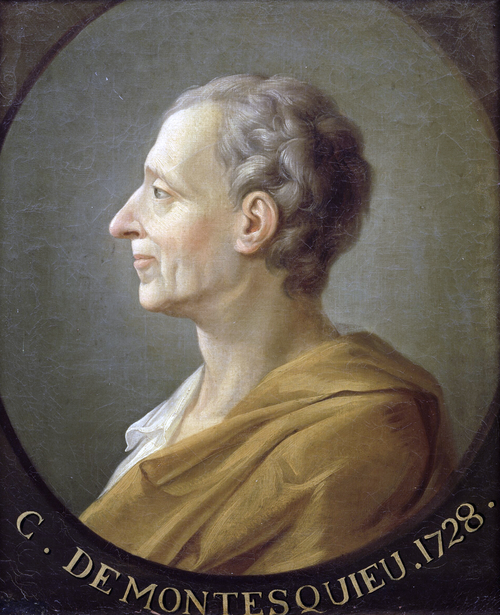
Professors at Hillsdale in D.C.’s Van Andel Graduate School of Government teach several interesting elective courses for their students. This semester, Dr. Luke Foster is teaching a class on Charles Louis de Secondat, baron de La Brède et de Montesquieu, more commonly known as Montesquieu. A course on this French figure has yet to be taught for the program. Hillsdale is D.C. asked Dr. Foster to explain why.
1. Why a course on Montesquieu? Why now?
Montesquieu, who was a baron and judge in Bordeaux in the southwest of France in the first half of the 18th century, is an extremely important figure but one that we have yet to have taught in the Van Andel Graduate School of Government. He is one of the standard-bearers of the “moderate Enlightenment,” someone who was trying to achieve a comprehensive view of politics and good government but who was cautious about the rationalist idea that abstract reason could always dictate what ought to be done. He wanted to move political philosophy away from too much focus on the state of nature and towards an affirmation of the good that living in society under government can secure. As such, he was a great inspiration to the American Founders who had a similarly vast ambition to understand “the science of politics” (Federalist #9) but who knew that they must pay attention to circumstances, to constraints, and to experience. At a time when liberalism and the Enlightenment are widely viewed as necessarily leading to relativism, Montesquieu both reveals in what sense that might be true and how that descent can be averted by a better understanding of the medieval and classical resources present in modernity.
2. What will some of the featured texts of the course be?
The core of the class is on The Spirit of the Laws (1745), Montesquieu’s most famous and voluminous treatise, but it will also include excerpts from his two other great works, The Persian Letters and Considerations on the Greatness and Decline of the Romans. Because I also want to think through how the Founders of our republic read Montesquieu and what they learned from him, we will also read some of the Federalist Papers, the Letters of Brutus (a leading Anti-Federalist), several of John Adams’ letters, and an excerpt from Joseph Story’s Commentaries on the Constitution.
3. What do you hope students will glean from this course?
I find Montesquieu very helpful to think with, and I hope our students will too, because he helps to distinguish the forms of government from their purposes. Today “democracy” is often used as a synonym for “good government,” but Montesquieu teaches us to value moderation and true freedom and to evaluate all institutional arrangements for how well they serve those ends. He also shows the horrors of despotism and its self-defeating character, which helps form the moral imagination of students.
4. What are you most excited to teach about this course?
I am most excited to learn from the students. Fourteen students have enrolled in the class, the most I have ever had at Hillsdale. I know they are eager! For many of them, I think, it will be the first time going past the cliché of Montesquieu who describes the distinction between the executive, legislative, and judicial branches of government. But Montesquieu doesn’t mean that the powers are to be entirely “separated”; rather they’re supposed to be interrelated! And they are not mere mechanical systems, but they are related to a whole complex of human passions, like fear, honor, and self-sacrifice. Unpacking all of this with students who have worked in the three branches and have experienced them from the inside will be a joy.
Read more about Dr. Luke Foster.
Sign up for Hillsdale in D.C.’s e-newsletter for more on events and programming.